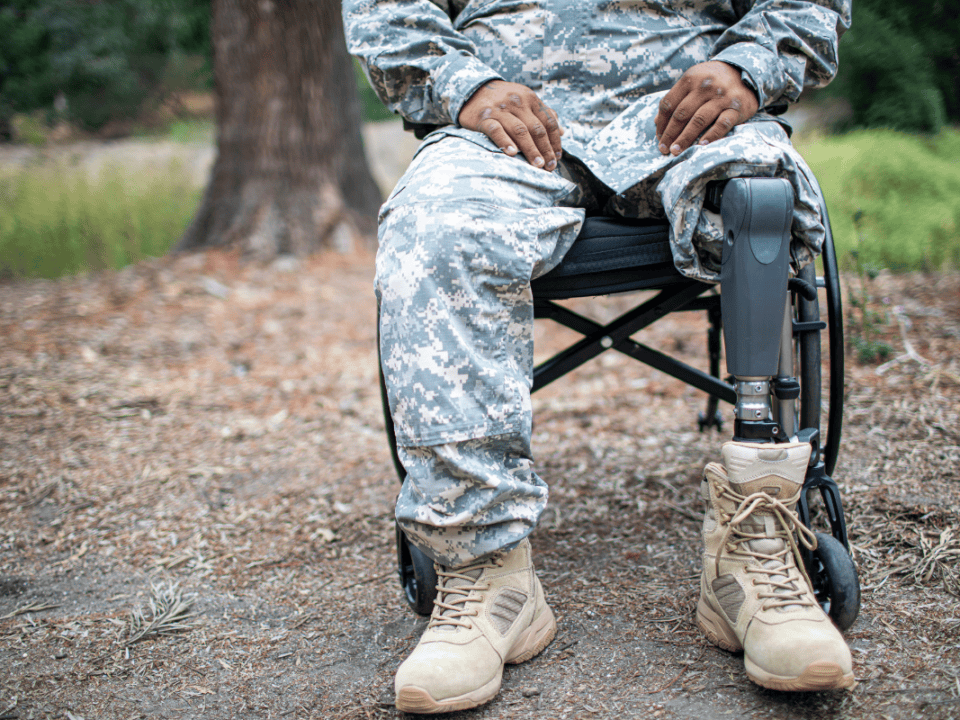- All
- Automobile Accident
- Business Litigation
- Criminal Defense
- Defective Products
- Guest Blog
- holidays
- Insider
- Insurance
- Life in South Carolina
- Litigation
- Litigation Support and Appeals
- Mediation
- Medical Malpractice
- Motorcycle Accidents
- News
- Personal Injury
- Qui tam
- Social Security Disability
- Traumatic Brain Injury
- Uncategorized
- Veterans Affairs
- Worker's Compensation
- Wrecks Involving Tractor Trailers
admin
July 17, 2024
Approximately three million U.S. service members were potentially exposed to Agent Orange in Vietnam between 1962 and 1971. Among these three million service members, many veterans who were exposed to Agent Orange may have passed its effects to their families over generations. These sheer numbers the widespread impact of Agent Orange exposure on American lives, spanning both past and present generations. Recognizing the scale and severity of this issue, the PACT Act took effect in August 2022 and expanded the eligibility criteria for receiving disability benefits due to Agent Orange exposure. With that in mind, let’s explore what is the average compensation for Agent Orange to veterans as well as Agent Orange benefits for widows and other dependents. Disclaimer: We are committed to helping veterans and their families understand their legal rights. However, due to the evidentiary challenges involved, we are unable to accept cases related to Agent Orange […]
June 7, 2024
Are you a VBA-qualified disabled veteran with a veteran disability rating of 30% or higher? If so, it’s crucial to understand your rights and the benefits available to you. One such benefit is the Disabled Veteran Leave, which can provide much-needed support during recovery. If you have never heard about this option, you’ve come to the right place. This guide will help you navigate these benefits and more. What is Disabled Veteran Leave? Disabled Veteran Leave provides up to 104 hours of paid leave for federal employees with a service-connected disability rating of 30% or higher. * Note that the Disabled Veteran Leave is a separate benefit from the normal sick leave and doesn’t come in exchange for the accrual of sick time. Disabled Veteran Leave Eligibility Eligibility Criteria — To Whom Does the Disabled Veteran Leave apply? Your effective hiring date is on or after November 5, 2016 You […]
May 17, 2024
When individuals reach the age of 60, especially those facing health issues or disabilities impacting their ability to work, opt for early retirement. The idea of stepping back from decades of employment, embarking on long-awaited adventures, and spending quality time with loved ones holds much more appeal than continuing in a diminished capacity at work. However, from the standpoint of benefits, opting for early retirement may not be the most advantageous approach. While the allure of early retirement is understandable, it’s advisable to be aware of the Social Security disability rules after age 60. Get the Most of Your Social Security Benefits by Staying Employed Early retirement at 62 does sound tempting. Nevertheless, avoiding early retirement is recommended to receive the highest benefit possible. Choosing this option automatically reduces the Social Security benefits you could get based on the number of months before your full retirement age. Early retirement […]
April 9, 2024
Every year, thousands of South Carolinians face the unexpected challenge of a workplace injury. From the bustling floors of manufacturing plants to the quiet desks of office spaces, no one is immune to the risk. In 2022 alone, the Bureau of Labor Statistics reported a significant uptick in non-fatal workplace injuries, underscoring a concerning trend across all sectors. This rise in incidents highlights the critical importance of understanding your rights and the benefits available under South Carolina’s Workers’ Compensation Act. In recognition of World Health Day and echoing this year’s theme, “My Health, My Right,” we delve into the essential knowledge every worker in SC should have if they find themselves injured at work. Whether it’s a slip on a wet floor, a strain from heavy lifting, or the psychological toll of work-related stress, knowing what steps to take can make all the difference in securing your health, rights, and […]
February 22, 2024
Overall, vaccines benefit human society. They help eradicate diseases, curb the spread of infectious illnesses, and prevent death. Most vaccine administrations don’t trigger significant complications, allowing individuals and society to function smoothly. And although rare, adverse reactions do occur, sparking debates and opposition regarding vaccine safety. Those voices don’t go unheard. The government provides various platforms for the public to report post-vaccination health issues, contributing to ongoing analyses and investigations to refine vaccines. The Vaccine Adverse Event Reporting System (VAERS) is one such vaccine safety monitoring system. In this post, we explain what vaccine injuries and the VAERS are, and what your next steps should be.
March 8, 2023
Every device used to read this article contains a battery. Batteries are essential to our lives. They help us connect with friends and even make video calls during power outages. As devices have become more powerful, the batteries inside have become denser, with higher outputs and quicker charge times. This growth has resulted in less expensive batteries capable of powering even high-performance sports cars. But there is a human cost to these batteries’ increased power and capacity because the energy stored inside a battery can be hazardous—and sometimes fatal. News reports about the dangers of batteries are nothing new but are becoming increasingly common. While we must follow certain limitations when using batteries, such as during air travel, when mailing items, and throwing them away, there are many hidden dangers. Just in January, a multi-family home was burned down in Brockton, NY, after a lithium-ion battery caught fire as a […]
January 11, 2023
Other than an Honorable Discharge According to the most recent U.S. Census statistics, approximately 16.5 million veterans live in the United States. When service members leave the armed forces, they receive a formal discharge of duties and a D.D. Form 214 that spells out the character of their service. Statistics regarding this process vary widely from year to year based on a variety of factors, including the active or peacetime climate of the Department of Defense at the time. 500,000 veterans are currently living with an “other than honorable discharge.”, according to The Department of Veteran Affairs (V.A.). Current statistics found that 16% of veterans discharged from service received a discharge characterization that did not meet the honorable threshold. Approximately 1% of discharges result in the most severe form of separation, a punitive discharge, labeled as a “Dishonorable” or “Bad Conduct” discharge. Why “Bad Paper Matters” Bad Paper is […]
August 23, 2022
Best Lawyers in America® recognizes four Bluestein Attorneys in 2023, with two named “Lawyer of the Year” COLUMBIA, S.C. – The Best Lawyers in America® has, in its 2023 edition, once again recognized three partners at Bluestein Attorneys, two of whom received “Lawyer of the Year” distinction in their respective practice areas. Only one lawyer is recognized as the “Lawyer of the Year” for each practice area and location. The three partners who again have been honored on the Best Lawyers list for Columbia, and the practice areas in which they are named, are: Margaret Miles Bluestein – Workers’ Compensation Law-Claimants Clarke Newton – Product Liability Litigation-Plaintiffs and “Lawyer of the Year” Personal Injury Litigation-Plaintiffs Allison Sullivan – Personal Injury Litigation-Plaintiffs and “Lawyer of the Year” Workers’ Compensation Law-Claimants Also, Timothy Mercer has been listed among “Ones to Watch,” for his work in Administrative/Regulatory Law. “Ones to Watch” recognizes attorneys who […]
August 3, 2022
Camp Lejeune Justice Act of 2022 Congress recently passed a bill that clears the way for many veterans and their families who were stationed at the Camp Lejeune military base in North Carolina to seek compensation for medical conditions likely caused by contaminated water. The Camp Lejeune Justice Act of 2022 eliminates a legal barrier prohibiting these victims from suing the government for benefits related to the illnesses related to the toxic water exposures at Camp Lejeune. The Act is under the umbrella of the Honoring our Promise to Address Comprehensive Toxics (PACT) Act of 2022. Toxins in water likely to blame for multiple health problems Exposure to contaminated water at Camp Lejeune during a 30-year period is blamed for various health conditions, including several types of cancer, fertility problems, Parkinson’s disease, and more. Victims were exposed to the contaminated water by drinking it, cooking with it, cleaning with it, […]








